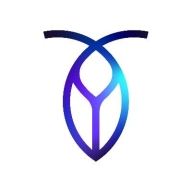

CockroachDB and Amazon Aurora are competitors in the cloud-based database management market. CockroachDB excels in distributed systems with its adaptable architecture, while Amazon Aurora shines with seamless AWS integration and strong multi-region deployment capabilities.
Features: CockroachDB offers high fault-tolerance, simple installation, and a distributed nature which allows geo-partitioning for enhanced data residency control, speed, and resiliency. Key features also include node syncing and automatic rebalancing. Amazon Aurora is noted for its robust scalability, auto-scaling, SQL standardization, and seamless AWS integration. It supports multi-region clusters, provides distinct endpoints for read and write operations, and offers continuous backups.
Room for Improvement: CockroachDB can enhance disaster recovery and failover features, improve PostgreSQL compatibility, and clarify serverless offerings. Its pricing and initial setup could also be more user-friendly. Amazon Aurora faces criticism for costliness. Enhancements in cryptography, standalone solutions, query performance insights, and integration with Oracle are needed. Predictability in update release patterns could improve user experience.
Ease of Deployment and Customer Service: CockroachDB supports both public and on-premises deployments, offering more flexibility for on-premise setups despite mixed reviews on technical support. Amazon Aurora operates primarily on cloud platforms supported by AWS infrastructure, excelling in AWS integration but requiring customer service improvements.
Pricing and ROI: CockroachDB's open-source cost model is seen as affordable, offering flexibility with a good return on investment, although some premium offerings are seen as costly. Amazon Aurora's managed service benefits reflect in its pricing, providing cost-effectiveness due to performance and AWS features, but price fluctuations based on usage and performance suggest potential for cost optimization.


Amazon Aurora is a MySQL and PostgreSQL-compatible relational database built for the cloud, that combines the performance and availability of traditional enterprise databases with the simplicity and cost-effectiveness of open source databases.
Amazon Aurora is up to five times faster than standard MySQL databases and three times faster than standard PostgreSQL databases. It provides the security, availability, and reliability of commercial databases at 1/10th the cost. Amazon Aurora is fully managed by Amazon Relational Database Service (RDS), which automates time-consuming administration tasks like hardware provisioning, database setup, patching, and backups.
Amazon Aurora features a distributed, fault-tolerant, self-healing storage system that auto-scales up to 64TB per database instance. It delivers high performance and availability with up to 15 low-latency read replicas, point-in-time recovery, continuous backup to Amazon S3, and replication across three Availability Zones (AZs).
Visit the Amazon RDS Management Console to create your first Aurora database instance and start migrating your MySQL and PostgreSQL databases.
CockroachDB is a distributed SQL database built on a transactional and strongly-consistent key-value store. It scales horizontally; survives disk, machine, rack, and even datacenter failures with minimal latency disruption and no manual intervention; supports strongly-consistent ACID transactions; and provides a familiar SQL API for structuring, manipulating, and querying data.
CockroachDB is inspired by Google’s Spanner and F1 technologies, and it’s completely open source.
We monitor all Relational Databases Tools reviews to prevent fraudulent reviews and keep review quality high. We do not post reviews by company employees or direct competitors. We validate each review for authenticity via cross-reference with LinkedIn, and personal follow-up with the reviewer when necessary.